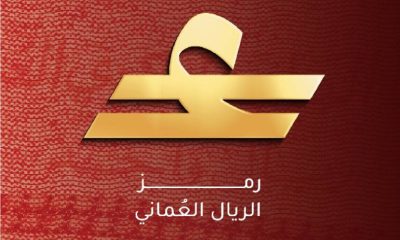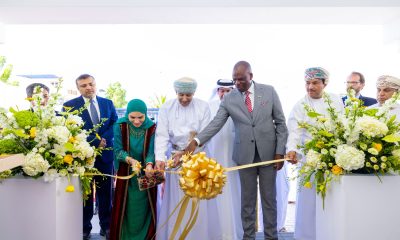Economy
IMF: Oman’s Economy Gradually Recovering

Oman’s economic efforts have been recognised – and praised – by the International Monetary Fund (IMF) as stated in a recent press release.
The aforementioned efforts include Oman’s ‘strengthening the status of public finance, promoting growth driven by the private sector, creating jobs, promoting economic diversification, improving labour market performance, building human capital, enhancing the business environment and increasing productivity and competitiveness.’
Lower Fiscal Deficit, Higher Oil Revenues
According to estimates, Oman’s fiscal deficit has reduced to 9 per cent of the Sultanates’ GDP as compared to 2017 when it was 13.9 per cent of GDP. The lowered deficit may primarily be attributed to higher oil revenues, driven by production cuts by leading global oil producers. So much so that oil prices in Oman during the first quarter of 2019 have had the best performance in almost a decade.
On the other hand, Oman’s oil and gas production increases have resulted in a GDP growth of 2.2 per cent.
According to the statement released by IMF, Oman’s fiscal deficit will further reduce down to 8 per cent of its GDP in 2019. One of the reasons for the decline is the proposed introduction of the excise tax on selected goods, which will offset any impact of low oil prices.
Oman’s Economy on Recovery Mode
In 2017, after hitting a low of 0.5 per cent, Oman’s non-hydrocarbon GDP is said to have increased to 1.5 per cent. This growth is expected to increase to 4 per cent over the medium term, granted that the Sultanate continues it’s ongoing efforts to diversify the economy.
The IMF statement continued to praise Oman’s “reforms in the areas of commercial law and arbitration and licensing procedures.”
The Sultanates’ approach to creating a sustainable and diversified economy that strives to achieve fiscal viability; a robust yet flexible regulatory environment; and quality governance – all part of the Oman Vision 2040 – was recognised and commended by the IMF.
The statement added that Oman could take further efforts to strengthen the business environment, including by reducing obstacles to foreign direct investment, fostering competition, and further easing trade barriers would help strengthen external competitiveness. Accelerating diversification efforts under the Tanfeedh program could also help raise non-hydrocarbon exports. Banks [in Oman] benefit from high capitalization, low non-performing loans, and strong liquidity buffers. Maintaining strong regulation and supervision will help strengthen resilience and ensure sustained growth.”
-

 Banking & Finance2 weeks ago
Banking & Finance2 weeks agoOman Oil Marketing Company Concludes Its Annual Health, Safety, Environment, and Quality Week, Reaffirming People and Safety as a Top Priority
-

 Economy2 months ago
Economy2 months agoMaal Card: What Oman’s New National Payment Card Means for Everyday Users
-

 News2 months ago
News2 months agoSheikh Suhail Bahwan, Chairman of Suhail Bahwan Group, Passes Away
-

 News1 month ago
News1 month agoOIG Appoints New CEO to Lead Its Next Chapter of Excellence
-

 Economy2 months ago
Economy2 months agoOman Unveils Official Omani Rial Symbol in Landmark Move to Boost Global Currency Presence
-

 News1 month ago
News1 month agoReport: How India & The Middle East Are Exploiting Immense Economic Synergies
-

 Uncategorized1 month ago
Uncategorized1 month agoOman’s ISWK Cambridge Learners Achieve ‘Top in the World’ and National Honours in June 2025 Cambridge Series
-

 Trade1 month ago
Trade1 month agoConsulate Office of the Republic of South Africa opens in Muscat, enhancing bilateral relations





























You must be logged in to post a comment Login